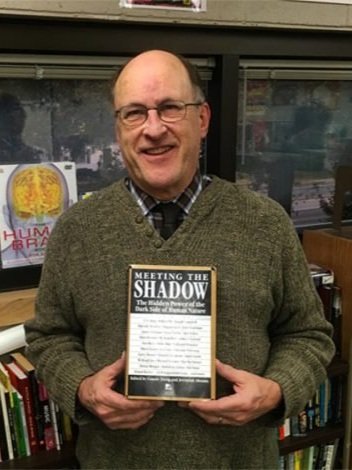Choose Your Illusions with Care
By Bill Bornschein | December 16, 2011
“Choose your illusions with care, tend them with wisdom, and may The Farce be with you.” With this blessing (curse?) I end my classes each semester. It encapsulates the approximate takeaway I wish for the students. The first clause references the vital lie of culture and also alludes to our freedom in managing it. The second clause echoes the theme of freedom and points to the ongoing nature of the task. The final clause is a tongue-in-cheek nod to The Force in Star Wars and, for us, an intuition of benevolence. Sometimes the class is psychology and we’ve watched Flight From Death. Sometimes it is comparative religion and Becker has been viewed in light of the Buddhist teaching on impermanence. Sometimes it is philosophy and we’ve explored “the psychologist Kierkegaard.” Exposing students to such powerful messages gives a teacher pause. To what end? What is the ultimate point and value of presenting these ideas? This concern is one that we all engage. It was brought home to me recently by a video on the parody website The Onion. The video featured an imaginary group of scientists who had taught a lowland gorilla awareness of its mortality. “When we began, Quigley was a normal happy ape.” Over the course of his education he is brought to the point of a panic attack as the scientists rejoice. While incredibly funny, for someone teaching Becker, the video is somewhat unnerving. Socrates taught that the unexamined life is not worth living, but any number of Woody Allen characters have taught us that the same holds true of the over-examined life.
As I’ve ruminated on this question for a few days I find myself dividing my answer into two categories, the personal and the collective. On the personal level, I’m less sure of the answer, less inclined to mess with Quigley the normal happy ape. Since we will never get to a state of complete unrepression and will forever live with a tacit, qualified acceptance of our illusions, might it not be better to leave well enough alone? I go back and forth on this side of the question. It is when I turn to the collective side that I see the indisputable value of teaching Becker. Awareness of his “science of evil” is not a luxury. Quigley the normal happy ape in The Onion video does not have the capacity for environmental devastation or thermonuclear warfare. We do. Becker’s insights provide us with the tools of self-awareness that we need to harness the better angels of our nature.
The current generation of Millennials provides some hope that we may be able to deal with our self-destructive tendencies. As a generation, they follow the much maligned Generation X whose nihilistic persona alarmed their elders. In response, the Millennials have been nurtured much like the GI Generation that followed the Lost Generation eighty years ago. They have been raised as a protected generation. Endless rounds of sports and school activities have kept them busy and engaged. School uniforms, curfews, and “baby on board” bumper stickers have kept them safe. “Helicopter parents” have hovered over their academic progress. They have engaged in an unprecedented amount of service activity through their schools and religious institutions. As a result, these Millennials have a great capacity to cooperate and work together, to engage the big projects that face humanity. At the same time they excel at the everyday grunt work necessary to see a job through. They recognize the heroic nature of the mundane, something that often escapes my own Baby Boomer cohort.
A shadow side of the cooperative personality of the Millennials is a key reason for presenting Becker’s insights on symbolic immortality. The dark side of cooperation is sheepish conformity. It is a conformity that was described by Erich Fromm during the 1950s as the GI Generation came of age. Consumer and entertainment culture certainly functions to keep all of us unconscious. This is an environment where symbol systems can work as an emotional shorthand that bypasses reason. Further, symbolic shorthand is the currency of manipulators and demagogues. This is all the more reason for today’s youth to be well versed in the seductiveness of symbolic immortality and the possibilities for constructive heroism. Regarding my teaching dilemma, a “confusion about heroism” is the price that must be paid for an awakening humanity. The role of the educator in all this is daunting. Best to trust in The Farce.

